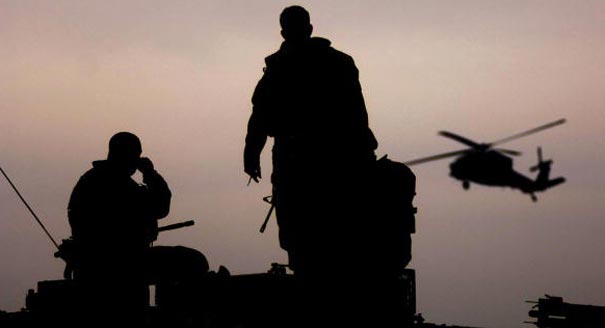Autumn in traditional Chinese thinking is the time of war and punishment, the time when all the death sentences came to the emperor for review and final decision. And then the heads would roll… or not, as the imperial will decided.
I doubt that Barack Obama is trying to fit in with the season. It is just that Bashar Assad went ahead and overstepped the line that tilted him from a run-of-the-mill, even if embattled, dictator to someone who has to be dealt with. Dictators and killing are not in short supply after all, but only selectively merit Western attention and calls for intervention.
These days, Assad wears a blood-stained image. I remember the media coverage when he first took over in Syria after his father’s death. The commentators’ optimistic appraisals back then sounded a lot like the talk about Dmitry Medvedev in 2008 and the allegations that the latter would prove a modernizer and a liberal. Of course, Assad has gone a lot further in dashing people’s hopes, even to the point of very probably using chemical weapons against his own citizens. It is always worth remembering how quickly things change and how easy it is to get up false hopes and naïve expectations.
There is no emperor now like in imperial China, sitting there with people’s fates in his hands. Instead, we have assorted leaders, parliaments, and public opinion, all wanting to have their cake and eat it, “do something” but not send in “our boys.”
It is tempting to put things in moral terms, talk of values and mission. But push down into the concrete issues and there is not much of the moral stuff left. Places like Rwanda got no more than sighs and hand-wringing, but then, the people there butchered each other with conventional means, machetes rather than chemical weapons.
The willing in East and West who rushed to “do something” in Afghanistan, ended up with Moscow-backed Najibullah hanging from a lamp post and the Taliban in power. Or rather, the local people got to suffer civil war and the Taliban for most of the next decade, while the West’s sense of mission faded again and only resurfaced after September 11 woke it up.
Central Asia does not get much of the moral talk. Uzbekistan’s Karimov got a telling off after killing his citizens in Andijan in 2005, but as he usually keeps his brutality more discreet he manages to get by for now. North Korea takes the West on a periodic dance of attempted nuclear blackmail and then fades back into its prison barrack life.
Where does the mission start and end, with protecting lives or responding to the type of weapon used to take them? And does it extend to only certain regions and not others, to only certain dictators and not others? Real circumstances and limitations make it so. Behind the talk, people will be killed no matter what option is chosen. Punish Assad with a limited operation and the conflict will keep going.
But the alternative is either to not intervene, or to get fully engaged in the situation, as in Iraq and Afghanistan. Western public opinion largely opposes the latter option though. Like it or not, just as Palestinians voting for Hamas say that it is democracy in all its frustrating imperfection. As for things like a sense of mission, I have absolutely no doubt that people in Beijing and Moscow, or various Western politicians have selfish and opportunistic reasons for opposing military action. The same goes for the supporters. And when it comes to being driven by a sense of mission, I doubt that a poker-playing senator could measure up to some jihadist acting with all the strength of the latter’s distorted heart. Whose mission would ultimately prevail? Those are all things we need to think about.
It is enough to concentrate on the concrete possibilities and the real aims, the realistic options for action or non-action, and their possible implications for Syria and the surrounding region without getting caught up in big things such as mission and values, just more banners and causes, and more fuel for fires already stoked high as it is.
Ijen Kim is Moscow-based translator.
